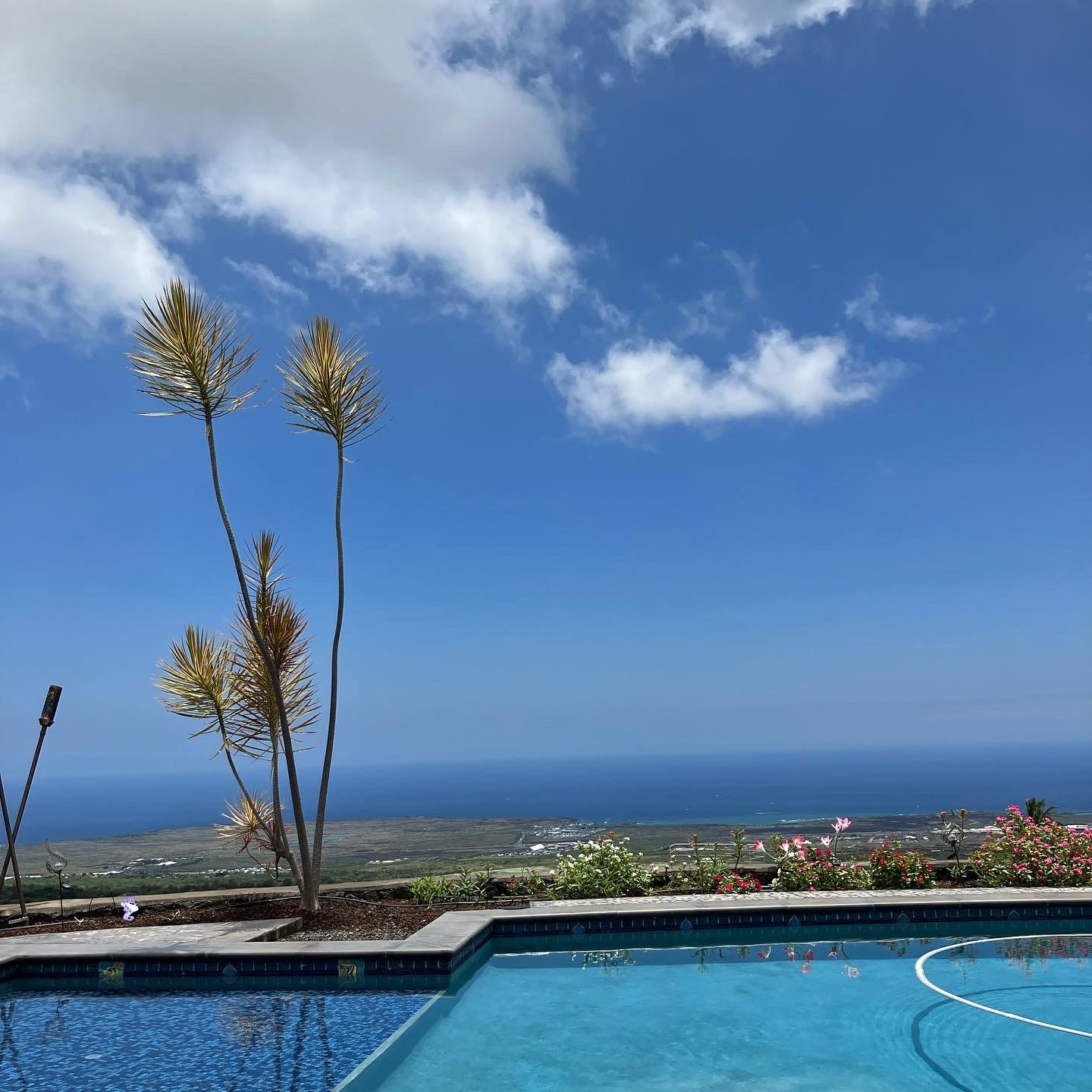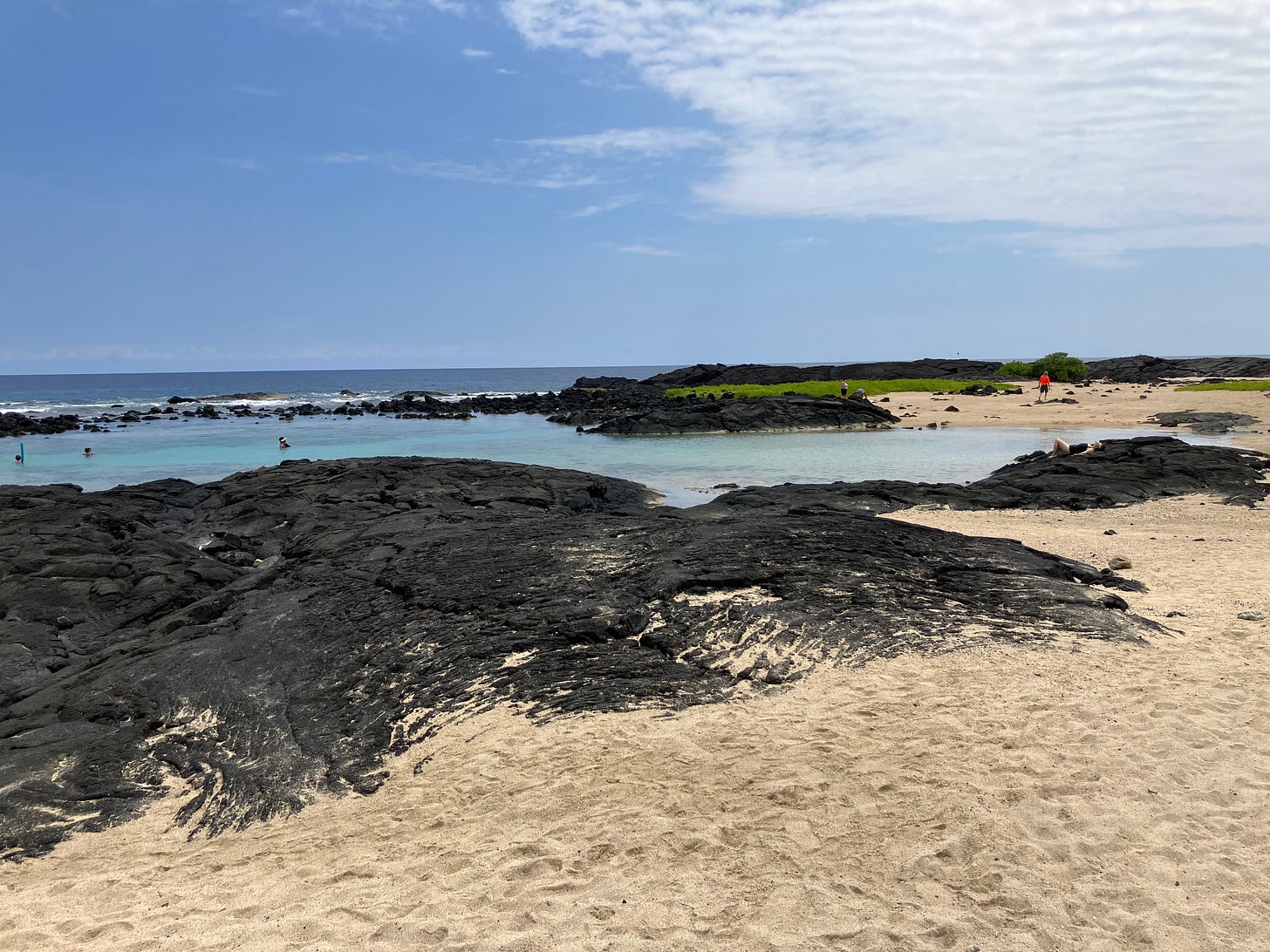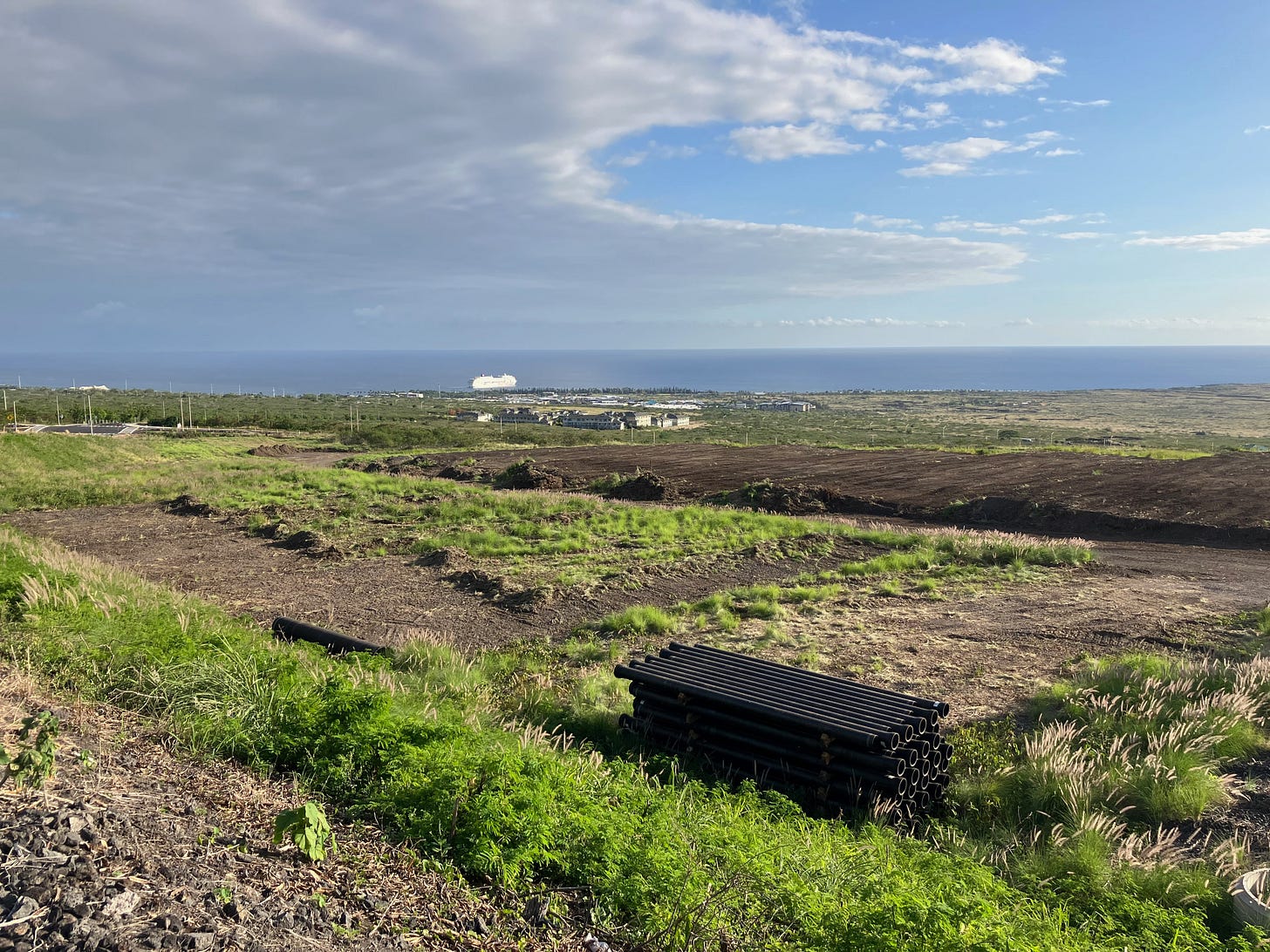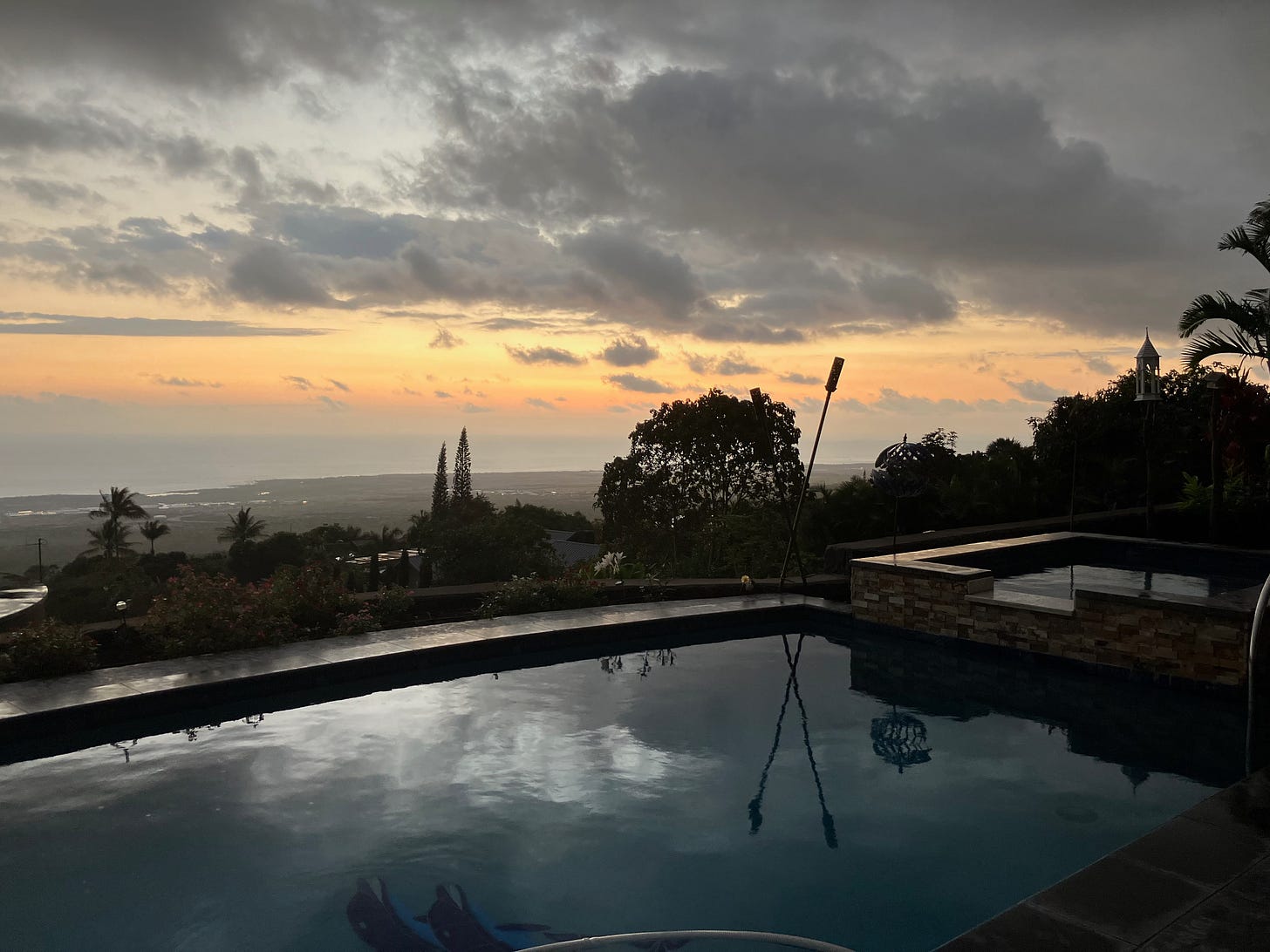Aloha from paradise. A colonized, addicted, impoverished, expensive, beautiful, hopeful and powerful place called Kona on Hawai’i Island. Overall, my first four days here have been excellent and I have seen and learned a lot - but I know I have only begun to scratch the surface. I hope this blog post is helpful in sharing some of my first impressions, both of Teach For America and Hawai’i.
When I arrived on Sunday night after the six hour flight from Seattle, it was hard to believe I was now in the middle of the Pacific Ocean, nearly 3,000 miles from home. I have traveled a lot, but I never cease to be amazed by how quickly airplanes transport us between such vastly different places.
Following my arrival, the place was entirely a mystery to me as I had arrived after sunset - only the following morning did the beauty of this place reveal itself to me. I’m incredibly fortunate to have a room at an airbnb up on a hill looking out at the ocean, I’ve never been anywhere with such a view and seeing it every day is an extraordinary privilege. The ocean stretches out far and wide, not only is it beautiful, it’s a constant reminder of the expanse of this blue marble and our relatively small and brief existence on it.
Why am I here? Not on holiday, but to start a new career as a teacher. When I decided to become a teacher, I chose Teach For America as an alternative pathway to licensure. Rather than pay for a traditional 1-2 year licensure program at a university, this program offers the opportunity to get licensed while teaching. There is an incredible teacher shortage in America and programs like TFA offer the chance to get licensed in exchange for serving in schools with significant shortages. With about 50 regions across the US to choose from, I went for Hawai’i because, well, is an explanation really necessary? Beyond the surface level appeal of living in a tropical paradise, I was interested in the acute intersection of social and environmental issues: poverty, colonization, ecological degradation, racism, addiction, pollution, the list goes on. These problems exist in most places, but to explore them on an island I thought might provide some unique insights and opportunities to work toward change. The history and culture are also incredibly appealing to me.
But why is there a teacher shortage? It’s not a mystery: How do you expect teachers to work at schools in places where the cost of living exceeds the salary? As unlicensed teachers, our starting salary is $38,000. Since I already hold a master’s degree, that puts me at $41,000. The cost of living? Federal and state income taxes first, then at least $1,000/month just to rent a room, and since it’s impossible to live here without a car, paying for that in addition to $5.50/gal gas and insurance leaves you with a few hundred dollars to cover groceries - and those are much more expensive than on the mainland too. So as soon as TFA folks come here and get licensed, they bolt for a higher-paying job in a lower-cost part of the US. Everyone knows this, the state government has the power to fix it, but they don’t.
I didn’t come here with the intention to get licensed and leave. After licensure, my salary will go up to $68,000 (including $13,000 in differentials for teaching Special Education and being at a school in a hard-to-staff region). At that income, it is by no means a luxurious existence, but it is possible. I also think it’s important to consider the incomes of the families of our students.
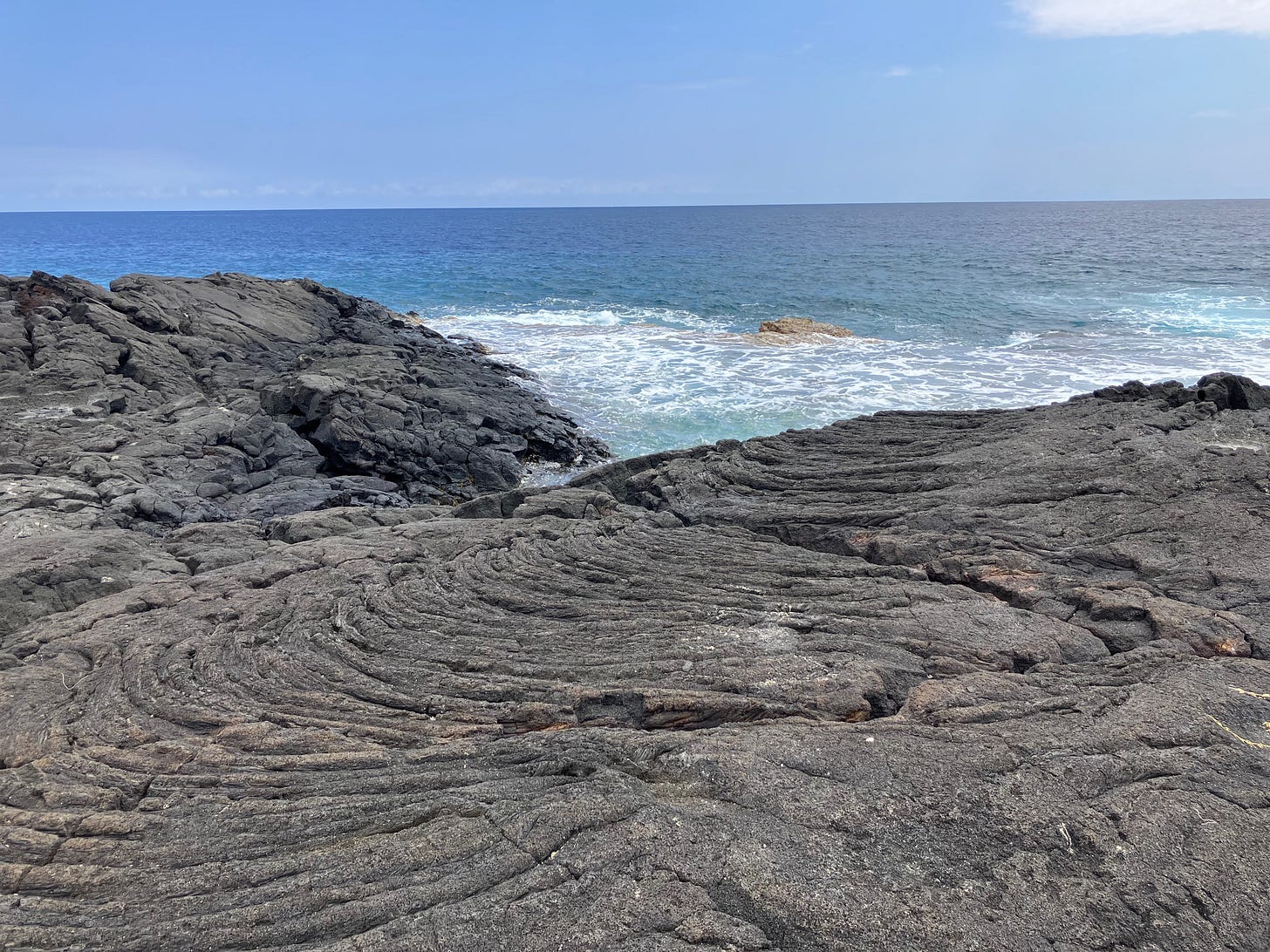
I went for a walk around the neighborhood where I will be teaching and found it incredibly depressing (was not inspired to take any photos): driveways piled high with junk, people living in cars on the streets smoking weed, I was overwhelmed by a sense of gloom as people made anti-white howling sounds while I passed by them. The neighborhood, Kealakehe, from what I understand, primarily consists of Section 8 low-income housing and Hawaiian Homelands housing for those with Hawaiian ancestry. There are also ‘regular’ apartment complexes and homes, but from what I have heard most families avoid sending their kids to public schools if they can afford it - the schools have a bad reputation.
I will make more money than many of my students’ families, but not enough to live on because I will not be eligible for Section 8 or Hawaiian Homelands housing. Of course, I could rent Section 8 housing under the table, that’s an option I recently learned about. This reality frustrates me, it’s different to experience structural oppression first-hand rather than to read about it (so why am I writing about it?). These kids grow up in poor families and go to schools staffed by underpaid teachers with no training (me) and if they manage to graduate they’re qualified to work jobs that pay even less than I make as a teacher - then find a way to survive on that? How?
I have had a few heartbreaking experiences already. One day was a conversation with an Uber driver who had attended the school where I will work. We got to talking (talk story as they say here) and he brought the reality home to me: He was one of the good students, he graduated and stayed away from drugs while growing up in a chaotic low-income family home. For all his hard work, he manages to survive by living in his car. For some ‘van life’ is a choice, but for others ‘car life’ is a step away from complete destitution.
What does TFA expect me to do? Go into the classroom amped up on social justice and work my ass off so that my students end up in their car instead of a jail cell? That’s progress? It seems more like madness to me.
College. Is that the answer? Well, even if students finish high school that doesn’t mean they have a GPA and/or test score that will get them into university. In-state options are also quite limited - make it past those hurdles and you still have to cough up tens of thousands in tuition or maybe qualify for a Pell grant and take on $40,000+ in student loan debt? Even then, finding a decent life more often than not means leaving the island, and your family, behind. Family means a lot here, the values are different, and I can completely understand people making it a higher priority, I admire it.
Ok. I have no real conclusion, but I am changing gears.
I went down to the Kailua-Kona tourist district, a 5 minute drive from Kealakehe. There’s a massive cruise ship floating in the distance and throngs of tourists weaving their way between restaurants, bars, hotels and the beach. Mostly what appear to be middle-class white Americans, just like me (but with better jobs). They love this place, the fresh ocean breeze, cosy tropical humidity and sunshine, so many great places to explore - everyone should come here, if it wasn’t for the fact that if everyone came here the thing they came here to see would be gone. I wish natural beauty was less of a precious commodity, I wish we all had it in our backyards. I hope that by coming here and seeing more biodiversity and natural beauty tourists might be inspired to make positive changes in their own lives and communities (eco-tourism?).
Yet, the disparity is frustrating. Where is the money going? Tourists pour billions of dollars into the economy, why are the people who grew up here so often living in poverty? I’m not sure, but it seems reasonable to assume the profits are going to the corporations that own and operate the hotels, restaurants and bars. People here have been fucked by global capitalism, it’s not a unique story. Yes, if the tourism went away they would be plunged from poverty into destitution, so they keep the train going a la Snowpiercer. Who can blame them? The problems are so massively systemic and the wealthy hold all the power - this is not the only place where that is the case, but it can be felt quite acutely. I guess I am getting what I came here hoping to experience.
It’s hard to see a way out. Teach For America floods us with social justice narratives (propaganda?) arguing that change starts in the classroom and works its way up. Just like the wealth trickles downs when we give the wealthy tax breaks? I dunno. I’m having trouble connecting the dots. I don’t want to sell my students false hopes, but I also don’t want to leave them hopeless.
Thinking pragmatically, the laws need to change so that money from tourism goes to the local people rather than the overseas multi-national corporations. On one hand, the government could make this change overnight (the pandemic showed us how quickly government can make massive changes), on the other hand, the powers that be are so entrenched it’s hard to imagine that ever happening. It’s not about getting into ‘positions of power’ when the laws are written by corporate lobbyists and the politicians are entirely dependent on corporate donations. How do we get democracy back? Did we ever have it?
These questions race through my mind, I lose hope, I go for a swim, I savor the present moment, I return to the grassroots. Rather than try to change a rigged system, can we start building one that is more just, democratic and free? Eco-villages, small businesses, airbnbs, step by step could people here take some power back by both competing against the corporations that dominate the tourist industry and also building living communities that depend less on American money for survival (owning the land, the property, and producing their own food). Maybe there is a way out without changing the massively depressing system that orchestrates the present oppression.
I have hope. I’m not sure that being a teacher within the broken system will help achieve the grassroots change I believe in, I don’t think it’s part of our curriculum, but maybe I’m wrong. Or maybe I’ll find a better opportunity to be part of that change in time. This is a special place with so much heart, where people are kind to each other, where people see themselves and the land as one, where I have a lot to learn.


